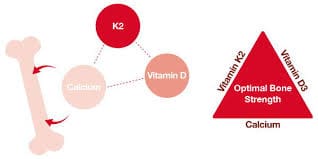Why Vitamin D Deficiency is Common: Causes and Effects
Vitamin D is a crucial nutrient that plays a vital role in maintaining strong bones, supporting the immune system, and reducing the risk of chronic diseases such as cancer, heart disease, and diabetes. Despite its importance, vitamin D deficiency is a prevalent problem, affecting millions of people worldwide. In this article, we explore some of the most common causes of vitamin D deficiency and the effects it can have on our health.
Certain populations are more likely to be vitamin D deficient than others. These include:
- Older Adults: As we age, our skin’s ability to synthesize vitamin D decreases, and our kidneys may become less efficient at converting vitamin D into its active form.
- People with Darker Skin: Melanin, the pigment that gives skin its color, can reduce the skin’s ability to produce vitamin D in response to sunlight. People with darker skin may require more sun exposure to produce the same amount of vitamin D as someone with lighter skin.
- People with Limited Sun Exposure: Individuals who spend most of their time indoors, live in areas with high levels of air pollution, or wear clothing that covers most of their skin are at higher risk of vitamin D deficiency.
- Obese Individuals: Vitamin D is a fat-soluble vitamin, meaning that it is stored in adipose tissue. People with higher body fat may require more vitamin D to maintain adequate levels in the blood.
- Individuals with Certain Medical Conditions: Some medical conditions, such as inflammatory bowel disease, celiac disease, and cystic fibrosis, can impair the body’s ability to absorb vitamin D from food. In addition, people with liver or kidney disease may have trouble converting vitamin D into its active form.
- Breastfed Infants: Breast milk is a poor source of vitamin D, and infants who are exclusively breastfed may not get enough vitamin D from their mother’s milk. Vitamin D supplements are recommended for breastfed infants to prevent deficiency.
Causes of Vitamin D Deficiency
- Lack of Sun Exposure: Vitamin D is synthesized in the skin when exposed to sunlight. However, many people spend a significant amount of time indoors or cover their skin with clothing or sunscreen, which can inhibit vitamin D production.
- Dietary Factors: While some foods, such as fatty fish and fortified dairy products, contain vitamin D, most people do not consume enough of these foods to meet their daily requirements. In addition, certain diets, such as vegan or vegetarian diets, may be low in vitamin D.
Effects of Vitamin D Deficiency
- Weak Bones: Vitamin D is essential for calcium absorption, which is crucial for maintaining strong bones. Without adequate vitamin D, the body cannot absorb calcium properly, which can lead to weak bones, osteoporosis, and fractures.
- Compromised Immune System: Vitamin D plays a vital role in regulating the immune system and defending the body against infections. Without enough vitamin D, the immune system may be weakened, leaving us vulnerable to illness.
Five Takeaways
- Vitamin D deficiency is prevalent in many parts of the world, with some estimates suggesting that up to 50% of the global population may be deficient.
- Certain populations, such as older adults, people with darker skin, and those who live in northern latitudes, are at higher risk of vitamin D deficiency.
- Vitamin D deficiency has been linked to a wide range of health problems, including osteoporosis, cardiovascular disease, autoimmune disorders, and certain cancers.
- While sunlight is the best source of vitamin D, it can be challenging to get enough of it, especially in winter months or in areas with high levels of air pollution.
- To prevent vitamin D deficiency, it is recommended to spend time in the sun daily, consume vitamin D-rich foods, and consider taking a vitamin D supplement if necessary.
What is the best treatment when you have Vitamin D deficiency?
Vitamin D is a vital nutrient that plays a key role in many bodily functions such as bone health, immune function, and mood regulation. A deficiency in vitamin D can result in a wide range of health issues, including fatigue, muscle weakness, bone pain, and an increased risk of fractures. Therefore, it is important to address and treat vitamin D deficiency promptly.
The best treatment of vitamin D deficiency involves increasing vitamin D intake through sun exposure, diet, and/or supplements. Sun exposure is the most natural way for the body to obtain vitamin D, as sunlight triggers the production of vitamin D in the skin. However, it is important to balance sun exposure with skin protection to avoid skin damage and the risk of skin cancer. Sun exposure guidelines vary depending on the individual’s skin type, location, time of day, and season, but generally, spending 10-15 minutes in the sun with exposed arms and legs a few times per week can help boost vitamin D levels.
Dietary sources of vitamin D
These include fatty fish (such as salmon and tuna), egg yolks, and fortified foods like dairy products, orange juice, and cereal. However, it can be challenging to obtain enough vitamin D through diet alone, especially for people with limited sun exposure or specific dietary restrictions. Therefore, vitamin D supplements may be recommended to ensure adequate intake. The appropriate dosage of vitamin D supplements can vary depending on the individual’s age, weight, and overall health, so it is important to consult with a healthcare provider to determine the appropriate dosage and duration of treatment.
In addition to vitamin D supplementation, other lifestyle changes may also be recommended to improve vitamin D levels. For example, maintaining a healthy weight, exercising regularly, and reducing alcohol intake may help improve vitamin D absorption and utilization in the body.
Overall, the best treatment for vitamin D deficiency involves a combination of increasing sun exposure, consuming vitamin D-rich foods, and/or taking vitamin D supplements as recommended by a healthcare provider. By addressing vitamin D deficiency promptly and effectively, individuals can help maintain optimal health and reduce the risk of related health issues.
In conclusion, Vitamin D deficiency is a prevalent problem that can have serious consequences for our health. Lack of sun exposure and inadequate dietary intake is the primary causes of vitamin D deficiency. To prevent deficiency, it is important to get enough sun exposure, eat a balanced diet that includes vitamin D-rich foods, and consider taking a supplement if necessary. By doing so, we can maintain strong bones, support our immune system, and reduce the risk of chronic diseases.
Vitamin D and Children
Vitamin D is an essential nutrient that plays a critical role in bone health, immune function, and overall growth and development in children. It is important for children to obtain adequate vitamin D to support healthy bone growth and to prevent the risk of related health issues such as rickets and osteoporosis.
One of the primary functions of vitamin D is to promote calcium absorption and maintain healthy bones. Calcium is a key mineral that is essential for building strong bones and teeth, and vitamin D helps to facilitate the absorption and utilization of calcium in the body. Without sufficient vitamin D, the body may not be able to absorb and use calcium effectively, leading to weaker bones and an increased risk of fractures.
In addition to bone health, vitamin D also plays a crucial role in the immune system, helping to protect against infections and diseases. Research has shown that vitamin D deficiency may increase the risk of respiratory infections, autoimmune diseases, and certain types of cancer in children. By supporting a strong and healthy immune system, vitamin D may help to reduce the risk of these health issues and support overall wellness in children.
Furthermore, vitamin D is also important for cognitive and neurological development in children. Studies have suggested that low vitamin D levels may be linked to an increased risk of cognitive impairments and developmental delays in children, although more research is needed to fully understand the relationship between vitamin D and brain health.
The main source of vitamin D is through exposure to sunlight, but many children do not get enough sun exposure to maintain adequate vitamin D levels. This may be due to a number of factors, such as spending too much time indoors, living in areas with limited sunlight, or using sun protection measures that limit UV exposure. Additionally, vitamin D is found in only a few food sources, such as fatty fish, egg yolks, and fortified dairy products, and it can be difficult for children to obtain enough vitamin D through diet alone.
For these reasons, many healthcare providers recommend vitamin D supplements for children, especially those at higher risk of deficiency. The recommended daily intake of vitamin D varies depending on the child’s age and health status, but generally, children may require more vitamin D than adults to support healthy growth and development. By ensuring that children obtain adequate vitamin D, parents and caregivers can help to promote strong bones, a healthy immune system, and overall wellness in their children.
Vitamin D is a vital nutrient that helps the body to absorb calcium and promotes healthy bone growth. However, when the body does not get enough of this vitamin, it can cause a range of strange and unusual symptoms. In this article, we will explore the weird symptoms of vitamin D deficiency, the causes of this condition, and how long it takes to recover from vitamin D deficiency.
Weird symptoms of Vitamin D deficiency:
- Hair loss
- Muscle weakness
- Fatigue
- Chronic pain
- Depression or mood changes
- Impaired wound healing
- Insomnia or trouble sleeping
- Tooth decay or cavities
- Reduced bone density
- Increased risk of infections
Causes of Vitamin D deficiency:
- Inadequate sun exposure
- Limited intake of vitamin D-rich foods such as fatty fish, egg yolks, and fortified dairy products
- Digestive disorders such as celiac disease, inflammatory bowel disease, and Crohn’s disease
- Kidney or liver disease
- Certain medications that interfere with vitamin D absorption
How long does it take to recover from Vitamin D deficiency? The amount of time it takes to recover from vitamin D deficiency depends on the severity of the deficiency and the individual’s response to treatment. In most cases, it can take several weeks or months of consistent supplementation to restore normal vitamin D levels in the body. However, it is important to continue supplementation even after vitamin D levels return to normal, as deficiency can recur if the underlying cause is not addressed.
Vitamin D Deficiency Disease: Severe and prolonged vitamin D deficiency can lead to a variety of diseases such as rickets in children and osteomalacia in adults. Rickets is a disease that causes softening and weakening of bones in children, leading to bowing of the legs and other skeletal deformities. Osteomalacia is a condition that causes weak bones, muscle weakness, and bone pain in adults. These diseases are rare in developed countries but can occur in people with chronic vitamin D deficiency.
Vitamin D deficiency symptoms can include muscle weakness, fatigue, depression, and reduced bone density. Individuals at risk for vitamin D deficiency include those with limited sun exposure, a vegetarian or vegan diet, digestive disorders, and kidney or liver disease. Vitamin D deficiency occurs when the body does not get enough of this vital nutrient, which is needed for healthy bone growth and calcium absorption. The hydroxyvitamin D level is used to measure vitamin D levels in the body and can help identify deficiencies. It is important to maintain adequate vitamin D levels to prevent the development of related diseases
In conclusion, vitamin D deficiency is a common condition that can cause a range of strange and unusual symptoms. The causes of vitamin D deficiency are diverse, and it is essential to work with a healthcare professional to identify and address the underlying cause. With appropriate treatment and lifestyle changes, it is possible to recover from vitamin D deficiency and prevent the development of severe diseases associated with prolonged deficiency.
Questions and Answers
What are the symptoms of vitamin D deficiency?
The symptoms of vitamin D deficiency can include fatigue, muscle weakness and pain, bone pain, depression, and an increased risk of fractures.
Who is at risk of vitamin D deficiency?
People who live in areas with limited sunlight, have dark skin, follow a vegan or vegetarian diet, are overweight or obese, or have certain medical conditions that affect the absorption of vitamin D are at higher risk of vitamin D deficiency.
Vitamin D deficiency can be treated by increasing sun exposure or taking vitamin D supplements. The amount of vitamin D needed depends on the severity of the deficiency and the individual’s health status, so it is important to consult with a healthcare provider to determine the appropriate dosage.
What are the symptoms of low vitamin D?
The symptoms of low vitamin D can vary, but common signs include fatigue, muscle weakness, bone pain, depression, and an increased risk of fractures. In severe cases, low vitamin D can also lead to rickets in children or osteomalacia in adults.
What is the most common cause of vitamin D deficiency?
The most common cause of vitamin D deficiency is a lack of sun exposure. Vitamin D is produced in the skin in response to sunlight, so people who spend most of their time indoors or live in areas with limited sunlight may be at higher risk of deficiency. Other factors that can contribute to vitamin D deficiency include age, dark skin, obesity, and certain medical conditions that affect vitamin D absorption.
Does low vitamin D affect hair?
There is some evidence to suggest that low vitamin D levels may contribute to hair loss, but more research is needed to fully understand the relationship between vitamin D and hair health. Vitamin D receptors are present in hair follicles, and studies have shown that supplementing with vitamin D may help improve hair density and reduce hair loss in people with deficiency.
Can vitamin D deficiency cause weight gain?
Vitamin D deficiency has been associated with weight gain and obesity in some studies, although the exact relationship between vitamin D and body weight is not fully understood. It is possible that low vitamin D levels may contribute to weight gain through effects on metabolism and hormones, but more research is needed to determine the exact mechanisms involved. It is also possible that obesity may contribute to vitamin D deficiency, as vitamin D is stored in fat cells and may not be as readily available to the body in people with excess body fat.





